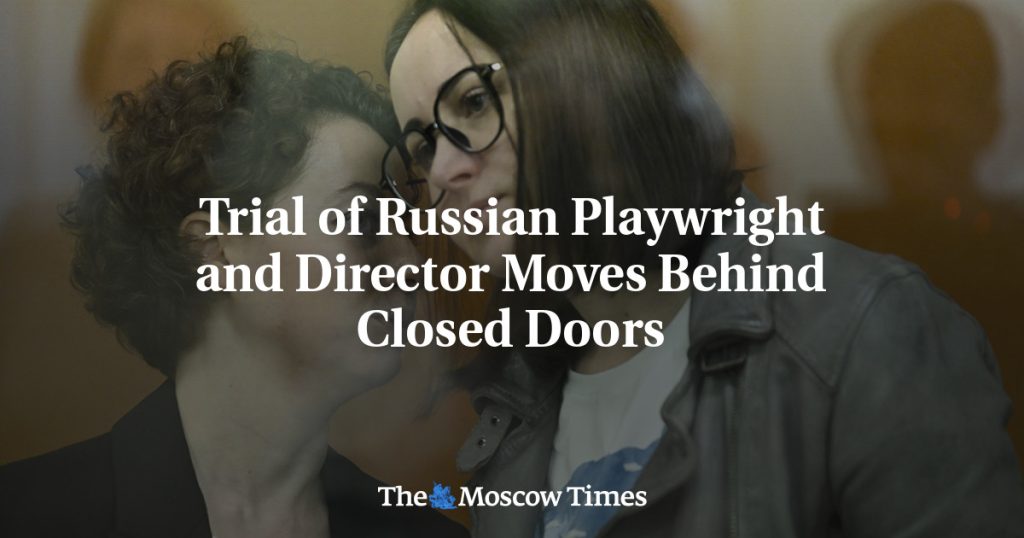A judge in Moscow has ruled that the trial of director Yevgeniya Berkovich and writer Svetlana Petriychuk, charged with “justifying terrorism” in their award-winning play, will continue behind closed doors. The play tells the story of Russian women lured to marry Islamic State militants in Syria. Prosecutors requested that the trial be closed due to alleged threats on social media towards witnesses, leading the judge to make this decision. Berkovich and Petriychuk and their lawyers have opposed closing the trial, emphasizing their innocence in the case.
At a previous hearing, a witness who remained anonymous for safety reasons revealed that he had filmed the play and provided the footage to police. The women are facing up to seven years in prison if convicted and have pleaded not guilty. Berkovich defended the play, stating that it was created to prevent terrorism, while the prosecutor accused them of supporting extreme forms of Islam. The arrest of Berkovich and Petriychuk in May last year caused shockwaves in Russia’s artistic community, already under pressure from the Kremlin since Russia’s involvement in Ukraine.
Their play, “Finist The Brave Falcon,” was performed in a documentary style and won two Golden Mask awards, Russia’s top theater prize. The play depicts Russian women enticed to join the Islamic State and subsequently tried for terrorism upon their return to Russia. Berkovich, in addition to the play, also wrote poems criticizing the Russian invasion of Ukraine. Concerns have been raised that they may be facing punishment for their artistic expressions. Amnesty International has condemned the targeting of the two women as an attack on freedom of expression and called for their immediate release.
The decision to close the trial to the press was made after the prosecution cited threats directed towards witnesses on social media. Berkovich and Petriychuk have emphasized their desire for the trial to remain open, highlighting their innocence in the case. The women are facing serious charges of justifying terrorism, and if found guilty, could be sentenced to up to seven years in prison. They have denied the charges against them, with Berkovich stating that the play was created with the intention of preventing terrorism.
Amnesty International has expressed concern over the arrest and trial of Berkovich and Petriychuk, suggesting that they are being targeted for exercising their right to freedom of expression. The women’s arrest has raised questions about artistic freedom in Russia, especially given the heightened pressure on the country’s artistic community in the wake of its military actions in Ukraine. The play, “Finist The Brave Falcon,” which earned critical acclaim, sheds light on the story of Russian women joining the Islamic State and facing consequences upon their return to Russia.
The case has drawn attention to the challenges faced by artists and writers in Russia who dare to criticize the government or address controversial topics. The closure of the trial to the public has raised further concerns about transparency and due process. Berkovich’s supporters believe that she may be targeted not only for the play but also for her poems criticizing the Russian invasion of Ukraine. As the trial continues behind closed doors, questions remain about the true motivations behind the prosecution and the impact on artistic freedom in Russia.


